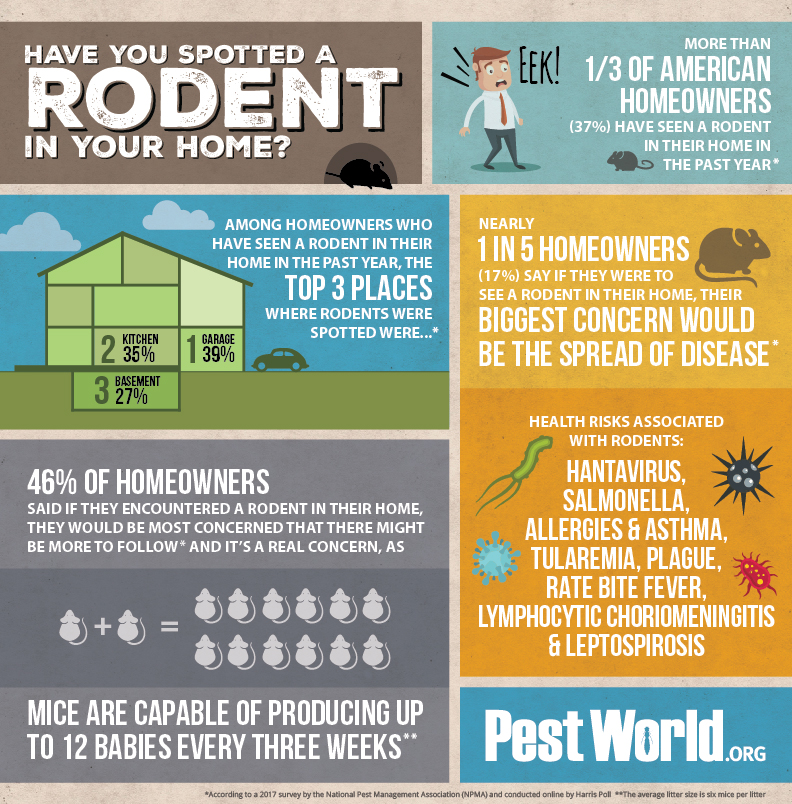Safeguarding Your Garden From Pests: Approaches For A Pest-Free Outdoor Area
Safeguarding Your Garden From Pests: Approaches For A Pest-Free Outdoor Area
Blog Article
Posted By-Castaneda Merritt
Visualize your yard as a sanctuary, a place of serenity and charm. Nevertheless, the existence of outside bugs can swiftly interrupt this ideal photo. What if there were brown recluse spider prevention yet reliable methods to maintain these undesirable site visitors away and secure your yard oasis? By following a couple of sensible pointers and implementing natural approaches, you can create a harmonious exterior space where your plants can grow undisturbed.
Natural Pest Deterrents
To maintain parasites far from your garden normally, plant aromatic natural herbs like mint and lavender. These fragrant plants not only add appeal to your garden but also function as efficient pest deterrents. Bugs like mosquitoes, flies, and also some garden-damaging insects are fended off by the strong scents discharged by these natural herbs. Merely putting them strategically around your yard can help produce an all-natural barrier against unwanted parasites.
Along with mint and lavender, think about growing other natural herbs like rosemary, basil, and lemongrass to additionally enhance your yard's pest-proofing capabilities. These natural herbs not just serve as natural repellents but likewise have the included advantage of being useful in cooking or crafting homemade remedies.
Strategic Plant Positioning
Take into consideration the design of your garden and the kinds of plants you have to purposefully place them for maximum pest-proofing efficiency.
Start by grouping plants with similar resistance to parasites with each other. By doing this, you can produce an all-natural obstacle that deters pests from spreading out throughout your yard.
Additionally, positioning pest-repelling plants like marigolds, lavender, or mint near more prone plants can help protect them. Tall plants, such as sunflowers or corn, can work as a shield for shorter plants against bugs like bunnies or ground-dwelling insects.
Keep in mind to leave enough area between plants to improve air circulation and reduce the risk of conditions that pests may carry.
In addition, think about growing strong-smelling herbs like rosemary or basil near susceptible plants to confuse bugs' senses and make it harder for them to locate their targets.
Effective Pest Control Techniques
For combating yard parasites successfully, implementing a multi-faceted insect control method is important. Begin by motivating https://www.pctonline.com/news/pest-control-consultants-pinnacle-performance-award/ -natural predators like birds, ladybugs, and hoping mantises to assist maintain bug populations in check. Introducing plants that draw in these useful bugs can assist in insect control. Furthermore, exercising good yard hygiene by eliminating particles and weeds where bugs may conceal can make your yard less congenial to unwanted visitors.
Consider using physical barriers such as row cover fabrics or netting to shield at risk plants from bugs like caterpillars and birds. Applying termite pest control services like neem oil or insecticidal soap can additionally work versus particular pests while being much less dangerous to advantageous insects and the setting. It's essential to turn your crops each period to stop the buildup of bug populations that target certain plants.
Frequently examine your plants for signs of insect damages so you can do something about it without delay. By combining these methods and remaining vigilant, you can efficiently manage garden pests and enjoy a thriving, pest-free garden.
Final thought
So, there you have it - with the best techniques, you can maintain pesky outside bugs away from your yard and help your plants grow.
Did you recognize that planting mint has been shown to push back mosquitoes and other insects, reducing the need for damaging pesticides by approximately 60%?
By including natural deterrents and smart growing methods, you can produce a gorgeous and pest-resistant garden sanctuary for you to delight in.
